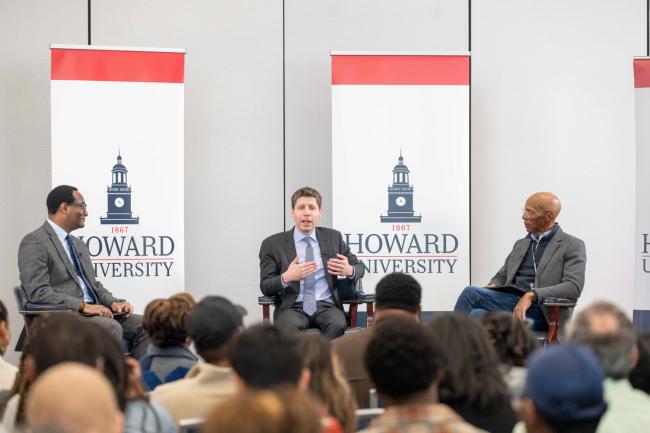By Autumn Coleman
In the Blackburn Ballroom, Sam Altman, co-founder and CEO of OpenAI joined Howard University President Ben Vinson III, Ph.D., and William Sutherland, Ph.D., director of the University’s Center for Computational Biology & Bioinformatics in a fireside chat about artificial intelligence and its impact on humanity.
The widespread immersion of artificial intelligence leaves many students, faculty, and community members with questions about the future of humanity. Artificial intelligence continues to rapidly indoctrinate itself in all sectors of society, leading to concerns about what humanity might lose in the process.
“Human adaptability is remarkable,” said Altman. “I’m very happy that people no longer think it’s weird that we can talk to a computer the way we talk to a human.”
AI’s appeal has increased in recent years, as human creation has caused ethical concerns. Many generative AI companies face copyright concerns and intellectual property infringement allegations.
Once questions were opened to the gallery, Howard’s community engaged with Altman about intellectual property concerns and larger issues of privacy.
“We think it’s a very important principle of intellectual property that we shouldn’t regurgitate content to the greatest of its ability,” said Altman. “It’s hard to be perfect at this.”
Altman continually acknowledged the current pitfalls of artificial intelligence but predicts that the industry will see meaningful change in the future. This time around, artificial intelligence is making space for marginalized communities, with the goal of creating a product made with worldwide input. Altman’s time at Howard continued his message with the opportunity for the Black community to get involved on the ground floor.
“It’s going to take the partnership and integration of all of society in making sure that this is done in an ethical way. We’re very excited that the technology allows this, and that we get to face the harder societal challenges,” said Altman.

